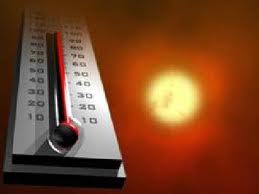 Extreme heat can be very dangerous, leading to heat stroke and death. Heat stroke occurs when your temperature rises quickly and your body cannot cool down. This condition is life-threatening, but it is preventable.
Extreme heat can be very dangerous, leading to heat stroke and death. Heat stroke occurs when your temperature rises quickly and your body cannot cool down. This condition is life-threatening, but it is preventable.
Tips for Preventing Heat-Related Illness
- Stay in air-conditioned space if possible. If your home is not air-conditioned, go to a public library, heat-relief shelter, or other cool location.
- Drink plenty of non-alcoholic fluids (check with your doctor if you are usually supposed to limit your fluids).
- Wear loose-fitting, lightweight clothing.
- Cut back on exercise.
- Closely watch those who are at high risk of heat-related illness, including older adults, young children, and individuals with physical and/or mental illnesses.
- NEVER leave anyone in an enclosed, parked vehicle.
If you believe that you or someone else may be suffering from heat stroke or another heat-related illness, get help right away. It could be a life or death emergency.

 Getting too hot due to weather can make you sick. You can become ill from the heat if your body can't compensate for it and properly cool you off. Heat exposure can even kill you: it caused 8,015 deaths in the United States from 1979 to 2003. Here are the factors to be most concerned about:
Getting too hot due to weather can make you sick. You can become ill from the heat if your body can't compensate for it and properly cool you off. Heat exposure can even kill you: it caused 8,015 deaths in the United States from 1979 to 2003. Here are the factors to be most concerned about: